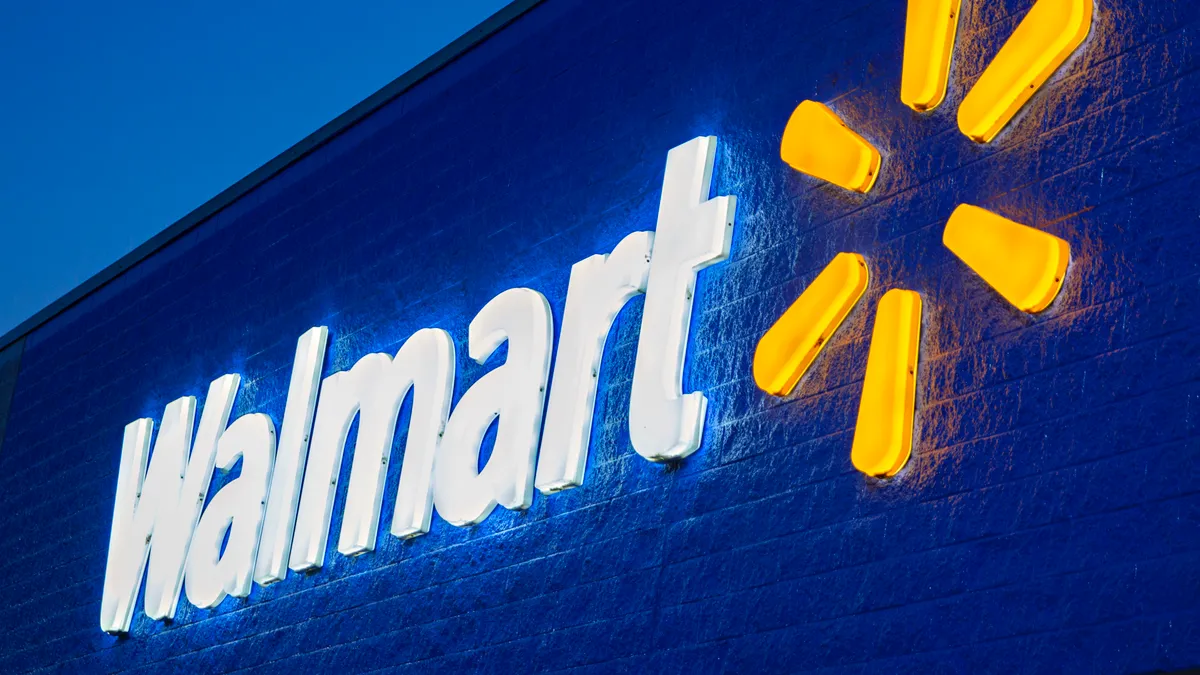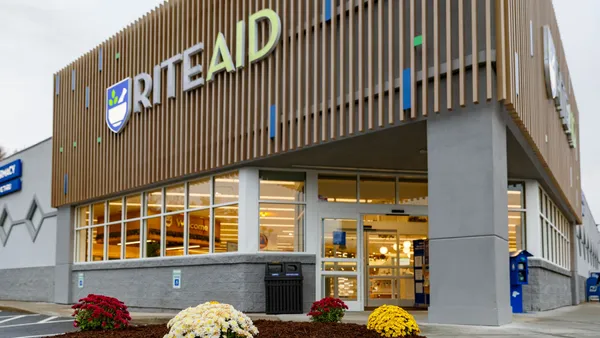Dive Brief:
- Walmart has seen shopper acceptance of substitutions increase to more than 95% since it started using deep learning artificial intelligence for online grocery orders, Srini Venkatesan, executive vice president of Walmart Global Tech, wrote in a blog post on Thursday.
- Deep learning is a function of AI that imitates how brains process data and can learn without human supervision. Walmart is using the technology to consider hundreds of factors, like size, type, brand and price, to make substitution recommendations, according to the post.
- Walmart has switched from relying on a manual process for identifying substitutions to employing deep learning AI to improve customer satisfaction and streamline order picking, Venkatesan said.
Dive Insight:
Product out-of-stocks and inaccurate substitutions are significant headaches for online shoppers. Walmart previously relied on its personal shoppers to judge the right replacement products, but this was an imprecise and inefficient process, according to Venkatesan.
"[T]here are nearly 100 different factors that can go into that decision. Trying to account for all of these would not only be too difficult, but it would also be incredibly time consuming," he wrote.
Deep learning AI allows Walmart to continually improve its substitution recommendations on the individual level as it looks to improve how it handles out-of-stock situations. Information on whether a customer approves or declines a recommendation for an out-of-stock item feeds back into the technology’s learning algorithms to boost the system's accuracy in the future.
"The decision on how to substitute is complex and highly personal to each customer," Venkatesan said. "If the wrong choice is made, it can negatively impact customer satisfaction and increase costs."
Deep learning AI not only addresses shopper dissatisfaction with substitutions but also improves the order-picking process, Venkatesan said. In addition to identifying and getting customer approval for substitutions, the technology shows personal shoppers where items are located in the store.
The technology is the latest effort by Walmart to enhance its on-the-job resources and make its workplace more efficient. Earlier this month, the retailer announced it is giving smartphones to more than 740,000 workers so they can use Walmart’s new workplace app, which will eventually help associates replenish products more quickly.
Last year, Walmart turned to AI for resource optimization and vehicle routing for its two-hour Express Delivery service.
















